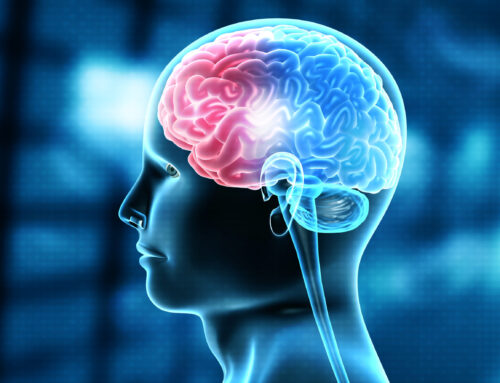The Connection Between Physical and Mental Health
There is no doubt that physical health conditions (especially those chronic in nature) are linked to poor mental health. Doctors and researchers have been looking at this connection for quite some time, and although more research needs to be done, the link has definitely been established.
There are two connections that they have noted:
1. People with poor mental health are at greater risk of developing chronic health health conditions and physical pain.
2. People with chronic physical health problems are at greater risk of developing mental health struggles.
Although this connection between physical and mental health seems quite obvious, it was not always recognized, and even to this day, doctors, therapists and other health care practitioners such as chiropractors and physiotherapists have been struggling to treat people with chronic pain, because so little is understood about how it develops and how mental health care can be utilized to manage chronic pain.
In this article we will outline: how mental health problems can create physical pain in our bodies, what is known about the connection between mental and physical health (Gabor Matte) and what can be done to treat chronic pain if you think it could be related to a mental health condition.
How Mental Health Problems Can Lead To Physical Health Problems:
Sleep
People with mental health issues such as depression can often have problems with sleep patterns. They can sleep too much or too little. Other mental health problems or generalized stress can keep us awake at night, leading to insomnia. When sleep patterns get disturbed, it can lead to physical health problems, because our bodies rejuvenate and heal in our sleep. Sleep is essential for feeling our best, and if we don’t work on this, our health deteriorates quickly.
Smoking
People with anxiety, depression or other mental health problems will often smoke to help cope. The nicotine found in cigarettes releases dopamine (a feel good hormone) which can help ease symptoms of depression. This can be one reason why people with mental health problems tend to smoke more. However, we all know the dangers of smoking. It increases our risk of heart attacks, strokes, and cancer.
Chronic Diseases
When someone is suffering from chronic depression, anxiety or other mental health concerns, they often struggle to take care of themselves and tend to eat poorly. They also tend to stay inside, and avoid physical activity. All of these habits can lead to poor physical health and chronic disease such as diabetes, obesity and cardiovascular problems.
Connection between Mental and Physical Health:
According to Dr. Gabor Mate, who has devoted his life to researching the connection between mental and physical well being, repressing emotions, particularly the strong negative emotions of anger, hate and sadness, has a direct impact of our body’s ability to defend against illness.
Chronic stress, when untreated, is correlated with a variety of chronic illnesses, such as digestive issues, heart disease, and immune disorders. Therefore, our emotions and our responses to them, are critical in maintaining positive mental and physical health. (When the Body Says No, Dr. Gabor Mate, 2003)
What Can be Done to Address Chronic Pain?
The body and brain connection is a source of healing for human beings. Through using the power of our brains, we can have an influence on our body states, including how we experience pain, both mental and physical. We can learn to have an impact on our feelings through intentional behaviours.
The most simple example is when we engage in deep diaphragmatic breathing- it instantly decreases blood pressure, lowers heart rate, and can elicit muscle relaxation in the body. Another common method is using visualization- for example, recalling details of a positive memory is a quick way to shift an emotional state and bring positive feelings forward. Positive self talk and affirmations are another way that we can reinforce helpful beliefs and thoughts, which in turn will increase our ability to heal.
Chronic pain can also be addressed by a qualified Chiropractor. They are trained to help identify the source of chronic pain and manage it with adjustments, muscle work, exercises and lifestyle advice. It is important to find a chiropractor who has experience managing chronic pain and be able to tailor their treatment approach to your specific needs. No two patients with chronic pain are alike, and it often requires creative and collaborative approaches to manage patients with chronic pain.
The connection between physical and mental health is complex, but as more research and experience is gained in this field, practitioners are able to better manage chronic conditions. Unfortunately not many will include a mental health check up in their initial plan of care. It is important to advocate for yourself or seek out your own mental health care, if you think it might be having an impact. You can contact our office at 519-751-0728 to learn more about our collaborative approach to chronic pain.













 Sharon Walker, MSW, RSW
Sharon Walker, MSW, RSW Jordon Iorio Hons. BA, RSW
Jordon Iorio Hons. BA, RSW Christine Bibby, B.S.W., M.S.W., R.S.W.
Christine Bibby, B.S.W., M.S.W., R.S.W. Brianna Kerr, RSW
Brianna Kerr, RSW Danielle Vanderpost, RSW
Danielle Vanderpost, RSW Daniela Switzer, MA, C.PSYCH
Daniela Switzer, MA, C.PSYCH Tammy Adams
Tammy Adams Jade Bates, RMT
Jade Bates, RMT Caitlin Schneider
Caitlin Schneider Dr. Crysana Copland
Dr. Crysana Copland
 Amy Dougley
Amy Dougley Emily Green
Emily Green Bill Dungey, RSW
Bill Dungey, RSW



 Jessica Moore, RSW
Jessica Moore, RSW Abigail Wragge, RSW
Abigail Wragge, RSW